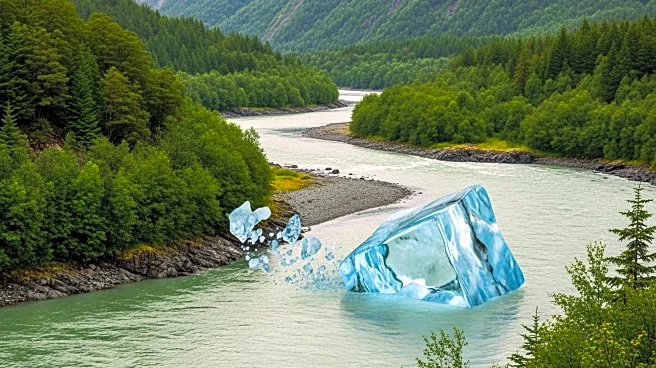What's Happening?
Europe is experiencing rapid warming, with temperatures rising at twice the global average rate. This has led to significant melting of glaciers, particularly in the Swiss Alps, which could disappear by the end of the century. The melting glaciers are altering river ecosystems and impacting shipping routes across the continent. The changes in water flow and availability are causing ripple effects on industries reliant on river transport and water resources. The situation highlights the urgent need for climate adaptation strategies to mitigate the impact of these environmental changes.
Why It's Important?
The melting of Europe's glaciers is a stark indicator of climate change, with far-reaching consequences for ecosystems, economies, and communities. The alteration of river systems affects shipping industries, water supply, and biodiversity, posing challenges for economic stability and environmental conservation. The situation underscores the need for international cooperation and policy measures to address climate change and its impacts. It also highlights the importance of investing in sustainable practices and technologies to adapt to changing environmental conditions.
Beyond the Headlines
The melting glaciers in Europe serve as a reminder of the global nature of climate change and the interconnectedness of environmental systems. The changes in Europe's rivers could lead to shifts in trade patterns and economic dependencies, affecting global markets. The situation also raises ethical questions about the responsibility of nations to address climate change and protect vulnerable ecosystems. Long-term strategies for climate adaptation and mitigation are essential to ensure resilience and sustainability in the face of environmental challenges.









